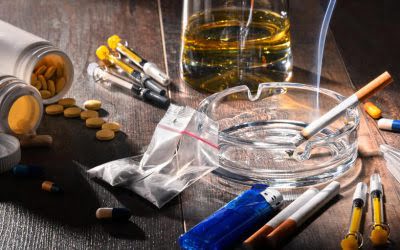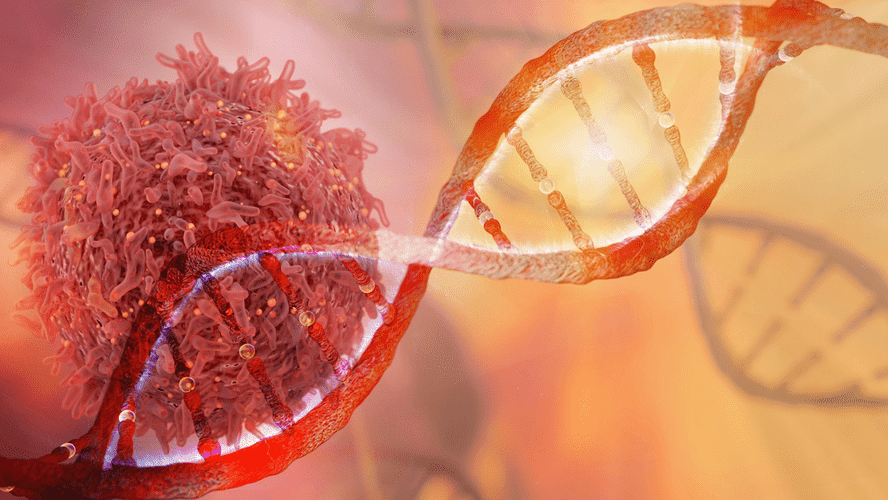Government-Funded Alcohol Abuse Programs
Contents
When addressing drinking problems, it’s important to also seek treatment for any accompanying medical and mental health issues. However, in outpatient programs, clients don’t stay at rehab facilities. Instead, they continue living at home and visit the facility for treatment once or twice a week.
Neighborhoods coming together to inform and educate families and children about the effects of alcohol abuse helps to build better and stronger future generations. SMART Recovery offers mutual support meetings for people seeking science-based, self-empowered addiction recovery. This is not an uncommon concern, but the short answer is “no.” All medications approved for treating alcohol dependence are non-addictive. These medicines are designed to help manage a chronic disease, just as someone might take drugs to keep their asthma or diabetes in check.
What is the first step for the treatment of alcoholism?
Understanding the available treatment options—from behavioral therapies and medications to mutual-support groups—is the first step.
Al-Anon is designed for people who are affected by someone else’s alcoholism. Alateen groups are available for teenage children of those with alcoholism. In sharing their stories, family members gain a greater understanding of how the disease affects the entire family. For example, good sleep, regular physical activity, managing stress more effectively and eating well all can make it easier for you to recover from alcohol use disorder.
Alumni & Recovery Volunteers Support
Ultimately, there is no one-size-fits-all solution, and what may work for one person may not be a good fit for someone else. Simply understanding the different options can be an important first step. These two options can be used in combination and tailored to individual needs.
For example, clients learn life skills and relapse prevention techniques to avoid triggers and stay sober. In addition to federal assistance programs for alcohol abuse treatment, state-funded programs that can offer you a community fairbanks recovery center number of services and resources. Some states provide treatment like rehab programs on a first-come, first-serve basis. Other states may base treatment options on the individual’s health condition and need for treatment.
Some health plans may only cover rehab for a certain period, or it is based on the patient’s health condition. For serious alcohol use disorder, you may need a stay at a residential treatment facility. Most residential treatment programs include individual and group therapy, support groups, educational lectures, family involvement, and activity therapy. Should cover outpatient substance use disorder care you receive from a clinic, hospital outpatient department, or opioid treatment program. Note that some substance use disorder treatment can also be provided using technology services, sometimes called telehealth. An alcoholism treatment program begins with help to halt your alcohol use.
No matter what your unique treatment plan looks like, you can count on being surrounded by a supportive community of peers who share in your struggles and celebrate your achievements. The Alcohol and Drug Recovery Center , a center of excellence at Cleveland Clinic, is based at Lutheran Hospital. ADRC offers the highest quality treatment and care for people who have an alcohol and/or drug dependency problem. We have successfully treated thousands of chemically dependent individuals. Multiple states are developing new initiatives to prevent and treat alcoholism with the assistance of federal assistance and funding through grants. This governmental partnership will allow more people to have access to quality care services and get appropriate alcohol abuse treatment.
ADDICTION & RECOVERY
Also, when AUD is left untreated, the drinking problem can get worse and possibly lead to other physical and emotional difficulties. Just as some people with diabetes or asthma may have flare-ups of their disease, a relapse to drinking can be seen as a temporary setback to full recovery and not a complete failure. Seeking professional help can prevent relapse—behavioral therapies can help people develop skills to avoid and overcome triggers, such as stress, that might lead to drinking. Most people benefit from regular checkups with a treatment provider. Medications also can deter drinking during times when individuals may be at greater risk of relapse (e.g., divorce, death of a family member).
- This is not an uncommon concern, but the short answer is “no.” All medications approved for treating alcohol dependence are non-addictive.
- If you have any questions about the type of therapeutic options you need to recover from your addiction, we encourage you to reach out to our treatment team.
- Most residential treatment programs include individual and group therapy, support groups, educational lectures, family involvement, and activity therapy.
- Others may want one-on-onetherapyfor a longer time to deal with issues likeanxietyordepression.
- Multiple states are developing new initiatives to prevent and treat alcoholism with the assistance of federal assistance and funding through grants.
Aftercare groups help members continue to develop their relapse prevention and coping skills and strengthen the positive impact of treatment. Evening IOP – an intensive outpatient program conducted in the evening thereby allowing patients to attend to job and family responsibilities during the day. The first step to successful recovery often begins with an outpatient visit, including the completion of a comprehensive assessment.
Looking Ahead: The Future of Treatment
As a result, most drinkers don’t develop significant problems. Still, millions of Americans develop serious symptoms of alcohol abuse or addiction. If you suffer from a drinking-related problem, you need quality substance abuse treatment. That is by far the safest, most dependable way to recover from your condition. Red Oak Recovery provides gender-specific programs at separate locations.
Let Footprints to Recovery help you get started on the path to recovery from alcoholism today. Give us a call to learn more about what your individual recovery could look like. Provides peer support for people on the medication-assisted treatment of Buprenorphine.
Alcohol.org needs to review the security of your connection before proceeding. Remember that changing deep habits is hard, takes time, and requires repeated efforts.We usually experience failures along the way, learn from them, and then keep going. Matching the right therapy to the individual is important to its success. It may also be helpful to determine whether treatment will be adapted to meet changing needs as they arise.
rehabs.com
They are led by health professionals and supported by studies showing they can be beneficial. When asked how alcohol problems are treated, people commonly think of 12-step programs or 28-day inpatient rehab but may have difficulty naming other options. In fact, there are a variety of treatment methods currently available, thanks to significant advances in the field over the past 60 years. Healthcare professionals now provide up-to-date treatments backed by science. Care is offered at different levels of intensity in a variety of settings. Many outpatient options allow people to maintain their regular routines and their privacy, too, if desired.
What are the 9 steps to recovery?
- #1. Admit You Have a Problem.
- #2. Find Support.
- #3. Detox.
- #4. Early Sobriety + PAWS.
- #5. Finding New Routines.
- #6. Pink Clouds.
- #7. Put Your Life in Order.
- #8. Avoid Relapse.
Your healthcare provider can help you evaluate the pros and cons of each. Marital and Family Counselingincorporates spouses and other family members in the treatment process and can play an important role in repairing and improving family relationships. Studies show that strong family support through family therapy increases the chances of maintaining abstinence , compared with patients undergoing individual counseling. Cognitive–Behavioral Therapycan take place one-on-one with a therapist or in small groups. This form of therapy is focused on identifying the feelings and situations (called “cues”) that lead to heavy drinking and managing stress that can lead to relapse.
Replace them with hobbies or activities that are not centered around alcohol. While there are no specific tests to diagnose alcohol use disorder, certain patterns of lab test results may strongly suggest it. And you may need tests to identify health problems that may be linked to your alcohol use.
What Is Recovering from Alcohol Addiction Like at Footprints to Recovery?
Research shows that about one-third of people who are treated for alcohol problems have no further symptoms 1 year later. Many others substantially reduce their drinking and report fewer alcohol-related problems. We emphasize diet, exercise, and other integrative therapies to rewire neural pathways.

The number of days they spend there depends on individual needs. However, rehab staff can plan sessions around a client’s schedule so they can still go to work short and long term effects of alcohol or school. Recovery is about learning what triggers you to want to drink, responding to these triggers with healthier habits, and developing a support system.
Be knowledgeable about your state’s eligibility and treatment options since there could be a waiting list, which can be a couple of weeks or even months. These may include group counseling or other outpatient services to help prevent people nutritional therapy for alcohol use disorder from relapsing while they wait for treatment. Many people do not require inpatient addiction help and want to receive the same excellent services that Summit Estate’s residential program offers, but on a plan that fits your schedule.
Types of Treatment
It’s one step down from inpatient rehab and requires the greatest time commitment while still allowing you to go home each night. They also form our bridge to our phenomenal self-help community, one of the oldest and largest in the nation. Inpatient treatment is often necessary for patients who need close medical supervision, detoxification and individualized attention to medical or psychiatric needs. Our patient-staff ratio allows for close medical supervision and individualized care.

Some of them turn to alcohol use as a means to cope, relax, and ease their minds. The Veterans Administration offers many alcohol abuse treatment options that help veterans overcome AUDs and get back to living a healthy and productive life. These specific programs and therapies are customized to assist veterans with other co-occurring disorders like post-traumatic stress disorder , sleep disturbance, depression, or pain. Individuals with untreated alcohol use disorders use twice as much health care and cost twice as much compared to those with treated alcohol use disorders.
Then, we can help them begin the transition to sober life outside of treatment. The next step is attending a treatment center, which is also essential to recovery. It includes education about alcohol use and addiction for individuals struggling with substance use, trauma, or mental health issues, and their family members. Additionally, treatment involves changing behaviors with proper therapy.



